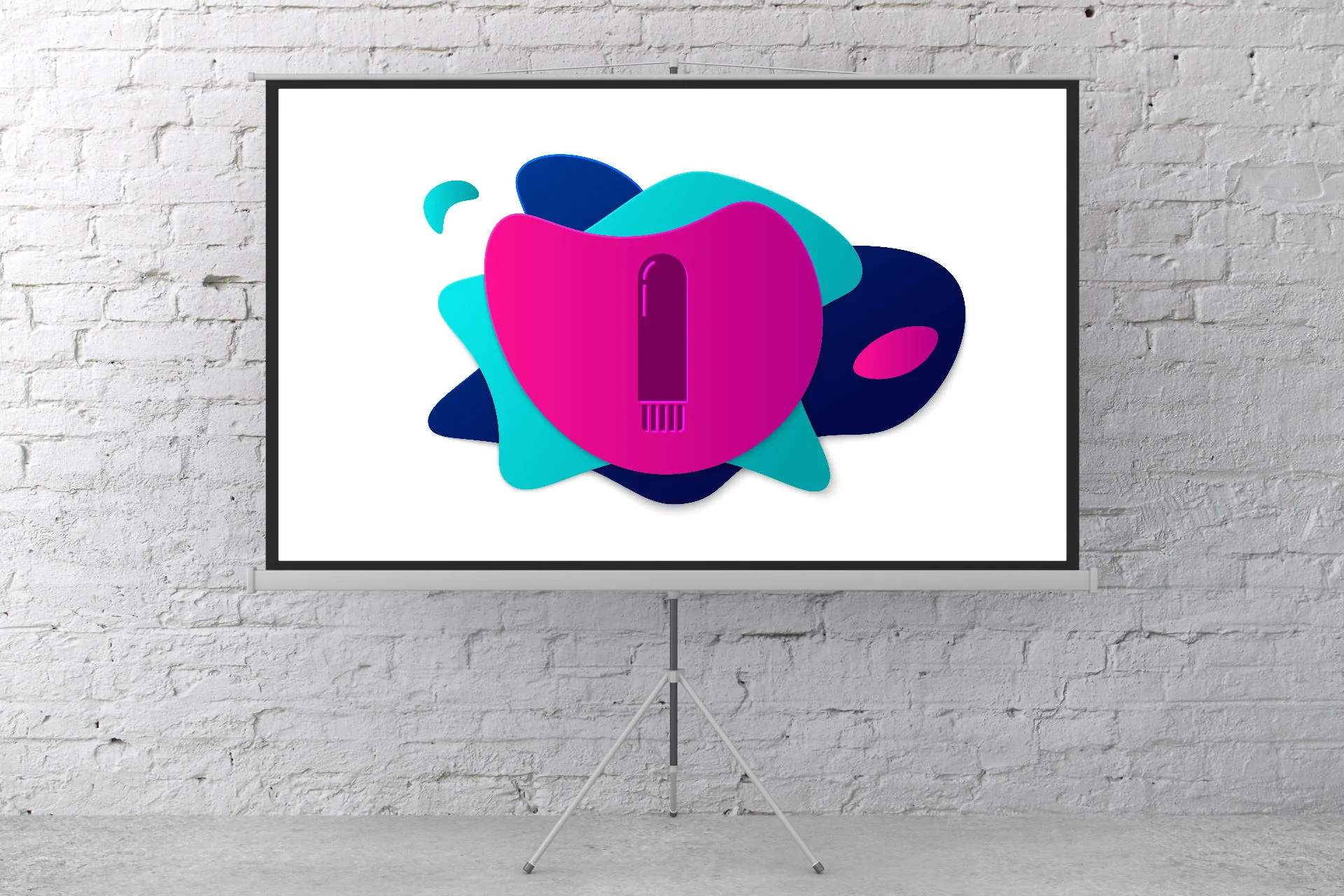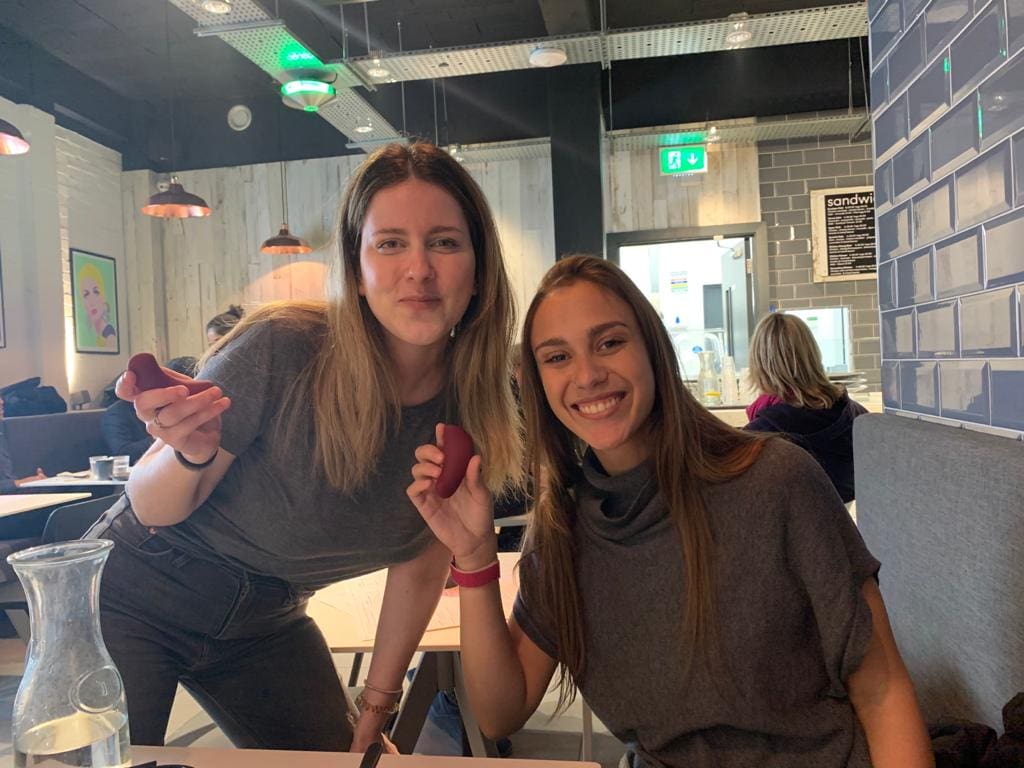A career in sextech is more attractive than ever – but why?

“99 percent of people in sextech came from a different industry”, MyHixel CEO and founder Patricia Lopez told SEXTECHGUIDE via a video call from Seville, Spain. And while we’re not certain on that exact statistic, it’s fair to say that – until now – pretty much everyone in sextech has come from other industries.
As a burgeoning sector, its newness is what makes it such an interesting one to be a part of, with ambitious people joining the business from a wide range of backgrounds, contributing to its rapidly growing success (particularly this year – against all odds – in the midst of a pandemic).
While everyone has felt the absence of networking opportunities and trade shows across the industry this year, the people within the business have stepped up, facilitating virtual events and migrating to a digital space in a sector that has been championing tech and virtuality since its inception.
As we’ve all had to adapt more than ever this year, we decided to take a look at what draws people to the sector; what advice would they give to their younger self taking their first tentative steps into the field? And what’s so good about sextech anyway?
Accentuate the positive
For some, the pivot to sextech derived from wanting to do something that would create a positive social impact.
Georgia Di Mattos is the CEO and co-founder of the iPlaySafe app – due to launch this November, it’s the first medically-approved STI-sharing app on the market. Coming from a corporate background, Di Mattos teamed up with a friend during maternity leave.
Circumvent Big Tech's Censorship! Never miss another post!
Subscribe to our notifications!
Article continues below
“The mission of our brand is to end the cycle of sexually transmitted infections through innovation and sharing technology. What a great mission to wake up for,” she told SEXTECHGUIDE. “If I am able to prevent a generation from having to deal with STIs, so they can feel liberated by experiencing pleasure with peace of mind, I know I have done something good with my life.”
Alice Stewart has similarly altruistic intentions. As the founder of TouchyFeelyTech, Stewart is currently working on a DIY vibrator kit to “capture likeminded people and give them the tools to make their own stuff”, she says.
“In turn, this opens up conversations around what the possibilities are in regards to how we can design things that better serve our physical, emotional and spiritual needs.”

Coming from a technical background building personal hardware, it was after Stewart attended a sextech hackathon at Goldsmiths University in London where she realised there was a “genuine community around [sextech], and a real space to fight for the inclusion of different backgrounds, and voices in the design [of sextech].”
“From here,” she adds, “I organically built my network and have connected with so many cool people along the way.”
These ‘cool people’ are notably seen as one of the main positives of the industry by many.
Patricia Cervantes, co-founder of dual-motor vibrator Vibio, says: “I have much more freedom to be myself, because, of course, I run my own company [now], but as you might expect, you can be a little bit more open about who you are as a person, and what your motivations are to start a project like this.

“It’s also great to talk about sextech with other founders too, and to show other people that we’re making a difference in the business world.”
Skills pay the bills
Despite 2020, well, being as unprecedented as everyone keeps saying it is, some positive progress has come with the launch of Sextech School, a six-week online programme headed up by industry figure Bryony Cole to help people make the pivot into sextech businesses.
While there are open-minded and helpful people throughout the industry who can help you build up your network and skills, those who came from a corporate background told SEXTECHGUIDE that public speaking is something that they’ve needed to develop if they want to make waves in sextech.
Di Mattos, from iPlaySafe, says: “There is one skill I’m having to develop that I didn’t realize I would need when I first started, which is public speaking. I thought I could keep myself in the background but the impact of being a woman CEO in the start up and sextech world became bigger. It’s now clear to me that I need to be also able to talk about my journey to inspire other women to start their own journey starting up a business.
When I ask Cervantes from Vibio the same question, she agrees she needed to develop skills in public speaking, “and especially public speaking around sex”, raising the taboo-busting responsibilities that many working in the business have to face up to.
“The first few months that we were working on this product, we thought we were super comfortable about it, until we had to start talking about it. That was a little bit of a learning curve,” she says. “Eventually, though, you get used to talking about vibrators and sex all the time. So it’s become easier for sure. In terms of self-confidence, as a founder, that’s also improved as well. Just to see that you can build something from the ground up […], after just two years, we’ve started to see results, so that’s really rewarding.”
Patricia Lopez is the co-founder of MyHixel, an innovative masturbatory sleeve that works in combination with an app-based erectile dysfunction programme. After working for several years at a fleshlight manufacturer, she took the steps to become CEO of a penis-focused product, in a market often seemingly saturated with toys and products for people with vulvas.
Talking about the product isn’t always the easiest for her either. She tells SEXTECHGUIDE: “Sometimes we have to really explain what our products are. Some people think it’s something medical, or ask if it’s just a sex toy, because we are combining the app with the device. But in our case, the app isn’t working as a remote control, but rather like a training or workout app. So, we often have to explain a lot of what we do, and that can be challenging.”
The problem with investment
While speaking about sextech can still be a little uncomfortable to people outside of the industry, it’s at the pitching desk where it can still prove the most challenging.
“In terms of investment, a lot of people don’t want to back sex products, even if we explain we’re not just sex but sexual health. It’s not easy. There are some barriers in the way,” Lopez explains.
Di Mattos says, at the pitching stage, it has been easier to avoid using the term sextech and go for health tech or wellness instead, “which is such a shame.”
“A big purpose of our brand is to break stigmas around sex. We knew we would have to do it when it comes to our users but I never thought we would have to battle to break stigmas on the investment level,” she adds.
Cervantes, from Vibio, adds that securing basic financial services can also be a problem.
“We struggled to open a business bank account at the start, even newcomers like Revolut or Monzo didn’t allow us to have a business account. That was surprising. Also, providers like Paypal exclude adult services products,” Cervantes says.
The future’s bright
While censorship remains a problem in the industry, when you consider how far attitudes towards sextech have moved along in the past decade, it’s exciting to think how much further we could go in the next 10 years – and that’s a view obviously shared by some of the people interviewed for this article.
“It’s an industry with a great future, and even in the uncertain times that we have seen in 2020, sextech has been an industry that has continued without major problems and some parts of the sector has flourished during the year,” Di Mattos tells SEXTECHGUIDE.
Now seems as good a time as ever to hop on board.
Read Next: VR porn for women always had potential, so what’s holding it back?






